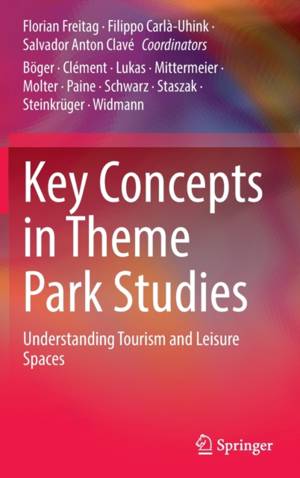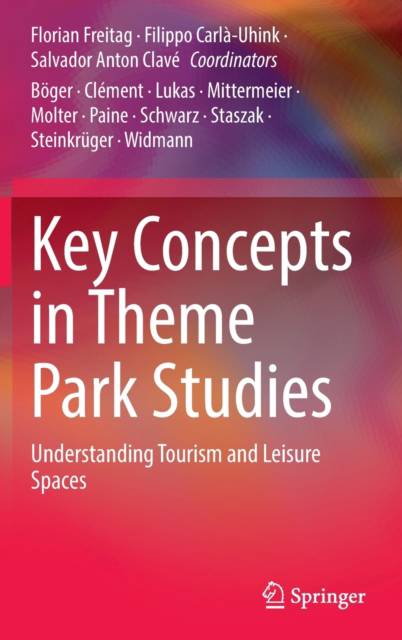
- Retrait gratuit dans votre magasin Club
- 7.000.000 titres dans notre catalogue
- Payer en toute sécurité
- Toujours un magasin près de chez vous
- Retrait gratuit dans votre magasin Club
- 7.000.0000 titres dans notre catalogue
- Payer en toute sécurité
- Toujours un magasin près de chez vous
Key Concepts in Theme Park Studies
Understanding Tourism and Leisure Spaces
Florian Freitag, Filippo Carlà-Uhink, Salvador Anton ClavéDescription
This book offers a comprehensive, multidisciplinary introduction to theme parks and the field of theme park studies. It identifies and discusses relevant economic, social, and cultural as well as medial, historical, and geographical aspects of theme parks worldwide, from the big international theme park chains to smaller, regional, family-operated parks. The book also describes the theories and methods that have been used to study theme parks in various academic disciplines and reviews the major contexts in which theme parks have been studied. By providing the necessary backgrounds, theories, and methods to analyze and understand theme parks both as a business field and as a socio-cultural phenomenon, this book will be a great resource to students, academics from all disciplines interested in theme parks, and professionals and policy-makers in the leisure and entertainment as well as the urban planning sector.
Spécifications
Parties prenantes
- Auteur(s) :
- Editeur:
Contenu
- Nombre de pages :
- 361
- Langue:
- Anglais
Caractéristiques
- EAN:
- 9783031111310
- Date de parution :
- 04-03-23
- Format:
- Livre relié
- Format numérique:
- Genaaid
- Dimensions :
- 156 mm x 234 mm
- Poids :
- 712 g

Les avis
Nous publions uniquement les avis qui respectent les conditions requises. Consultez nos conditions pour les avis.






